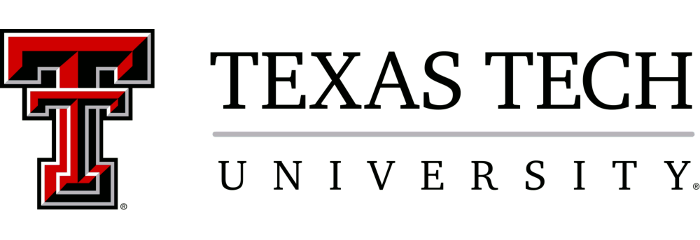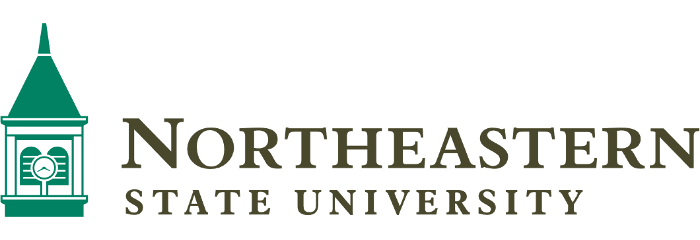
Higher education costs can be a major concern. To help alleviate this burden, we've compiled a list of the most affordable online master's degree programs for 2024. Our team has carefully verified tuition costs to highlight institutions that offer exceptional value without compromising quality. The majority of institutions have tuition rates clustered around $5,000 to $6,000, with the overall median tuition for the most affordable online master's degrees on the list is $5,618.
The list of the most affordable schools for online master's degrees showcases a diverse range of institutions across the United States. Notably, Georgia emerges as a standout state, with four universities making the list. Kansas also shows significant representation with three institutions. The top-ranked institution, Texas Tech University, offers the lowest annual tuition at $4,260, excluding mandatory course fees. The majority of institutions have tuition rates clustered around $5,000 to $6,000, with the overall median tuition for the most affordable online master's degrees on the list is $5,618, excluding fees.
For more information on how we evaluated these programs, please visit our methodology for detailed information.
Popular Online Programs
| a | Online Schools | Programs | Alumni Salary |
|---|---|---|---|
| 279 | 668 | $78,700 | |
| 36 | 84 | $111,780 | |
| 14 | 41 | $67,360 | |
| 23 | 73 | $85,510 | |
| b | Online Schools | Programs | Alumni Salary |
| 57 | 214 | $73,700 | |
| c | Online Schools | Programs | Alumni Salary |
| 46 | 70 | $55,920 | |
| 32 | 126 | $47,350 | |
| 57 | 139 | $89,490 | |
| 202 | 561 | $68,480 | |
| 150 | 365 | $110,480 | |
| 226 | 542 | $51,990 | |
| 34 | 77 | $49,020 | |
| 216 | 600 | $55,970 | |
| 203 | 383 | $73,800 | |
| d | Online Schools | Programs | Alumni Salary |
| 149 | 244 | Not reported | |
| e | Online Schools | Programs | Alumni Salary |
| 41 | 103 | $93,790 | |
| 790 | 4,390 | $60,250 | |
| 410 | 1,060 | $65,400 | |
| 68 | 187 | $126,690 | |
| 160 | 400 | $54,070 | |
| 65 | 153 | $82,760 | |
| 113 | 259 | $112,170 | |
| 112 | 200 | $50,190 | |
| 122 | 316 | $67,710 | |
| 130 | 254 | $60,890 | |
| 65 | 147 | $54,220 | |
| f | Online Schools | Programs | Alumni Salary |
| 269 | 511 | $113,850 | |
| 18 | 45 | $55,900 | |
| 53 | 131 | $73,800 | |
| h | Online Schools | Programs | Alumni Salary |
| 130 | 199 | $76,160 | |
| 362 | 904 | $77,920 | |
| 321 | 750 | $79,580 | |
| 66 | 156 | $52,210 | |
| 93 | 272 | $82,570 | |
| 54 | 103 | $61,820 | |
| 234 | 524 | $72,400 | |
| 150 | 447 | $48,390 | |
| i | Online Schools | Programs | Alumni Salary |
| 43 | 97 | $94,500 | |
| 230 | 727 | $104,210 | |
| j | Online Schools | Programs | Alumni Salary |
| 49 | 93 | $60,950 | |
| l | Online Schools | Programs | Alumni Salary |
| 94 | 188 | $52,040 | |
| m | Online Schools | Programs | Alumni Salary |
| 684 | 2,433 | $95,490 | |
| 253 | 465 | $79,430 | |
| 35 | 95 | $51,990 | |
| 96 | 200 | $91,620 | |
| 677 | 3,306 | $95,490 | |
| 52 | 131 | $103,650 | |
| 32 | 99 | $42,450 | |
| 129 | 341 | $57,600 | |
| 88 | 173 | $35,650 | |
| n | Online Schools | Programs | Alumni Salary |
| 157 | 922 | $112,350 | |
| 448 | 2,177 | $112,350 | |
| 108 | 271 | $57,860 | |
| o | Online Schools | Programs | Alumni Salary |
| 464 | 1,095 | $95,490 | |
| p | Online Schools | Programs | Alumni Salary |
| 11 | 27 | $61,160 | |
| 74 | 174 | $54,190 | |
| 32 | 115 | $83,890 | |
| 149 | 299 | $95,490 | |
| 198 | 634 | $54,770 | |
| 281 | 724 | $71,640 | |
| 213 | 605 | $76,160 | |
| 45 | 99 | $71,190 | |
| r | Online Schools | Programs | Alumni Salary |
| 167 | 790 | $47,020 | |
| s | Online Schools | Programs | Alumni Salary |
| 86 | 251 | $54,270 | |
| 118 | 337 | $54,070 | |
| 21 | 59 | $58,590 | |
| 53 | 93 | $131,830 | |
| 23 | 40 | $57,150 | |
| 315 | 1,002 | $63,050 | |
| 15 | 47 | $62,990 | |
| 174 | 379 | $54,220 | |
| 45 | 85 | $51,990 | |
| 124 | 194 | $95,490 | |
| 70 | 154 | $136,120 | |
| t | Online Schools | Programs | Alumni Salary |
| 392 | 1,706 | $55,670 | |
| 86 | 283 | $55,610 | |
| w | Online Schools | Programs | Alumni Salary |
| 12 | 23 | $96,370 |
Most Affordable Schools for Online Master's Degrees
Overview of Online Master's Degrees
The growth of online programs has students across the country considering earning their master's degree online. Many online students prefer distance learning because it's more convenient and makes it easier to fit classes into an already busy schedule. Enrolling online might give students more choices when selecting a school or program – depending on what's available in your local area, you might find a more affordable option or a program that better fits your needs online.
People go to graduate school for different reasons. Some choose to pursue an online master's degree to gain subject-area expertise or specialize in their field, while others choose master's programs to gain new skills for a career change. Earning a master's degree may also be necessary for professional certification or licensure in fields such as counseling or healthcare.
What Is A Master's Degree?
Master's programs are advanced degrees that allow students to focus solely on their field of study and gain skills and knowledge targeted for specific careers. Master's degrees usually include 30-40 credits, but some programs require as many as 60 credits, depending on the degree. Most master's programs take two years to complete, but this also depends on if students enroll at a full- or part-time pace.
Master's Degree Quick Facts
Average Credits: 30-40
Average Duration: Two years
You'll need to have a bachelor's degree from an accredited university to enroll in a master's program, and many graduate schools require at least a 3.0 GPA, although some schools only ask that you earned a 2.5 or 2.75 GPA during your undergraduate studies. If you choose a master's program in a field similar to your bachelor's degree, you'll likely meet most course prerequisites. For students seeking a degree in a new field, there may be additional coursework requirements you'll need to complete prior to enrollment.
Some master's programs require applicants to submit standardized test scores along with their application. The most common ones are the Graduate Record Examination (GRE), the Graduate Management Admission Test (GMAT), the Law School Admission Test (LSAT), and the Medical College Admission Test (MCAT). Although it's fairly common for one of these tests to be required, there are online options that do not require standardized testing in the application process.
Can You Get a Master's Degree Online?
Today's graduate students have access to thousands of online master's degree programs offered by accredited and respected universities across the country. Whether you're looking for a master's degree in computer science or social work, there are many more options available to you due to the rapid growth of online degrees.
Many online master's degrees are geared toward working adults, offering flexible schedules and a quicker path to completion.
When choosing an online program, it's important to note that there are a few major differences between online options. One of the most significant differences is between nonprofit and for-profit schools. Nonprofit schools are generally seen as the better option, as there is a long history of predatory practices and evidence for poor student outcomes at for-profit schools overall. However, this is not always true. There are for-profit colleges that offer quality degree programs and have good reputations. It's best to do some research if you're considering a for-profit institution to ensure you'll have the support you need.
Accreditation
Accreditation is crucial when considering an online master's degree, as it signifies that a school and its programs meet universal academic quality standards set by accrediting bodies. Accredited schools can receive federal funding, allowing students to use federal and state financial aid. Choosing an accredited program ensures that a degree is recognized by employers and other institutions, enables the use of financial aid, allows for the transfer of credits, meets requirements for doctoral or post-master's programs, and is often necessary for certification and licensure.
At OnlineU, we only feature accredited schools to guarantee quality education options, with accreditation information available under our rankings to help you make informed decisions.
Are Online Master's Degrees Respected?
Some still worry that an online degree won't be taken seriously, but this perception has changed significantly as prestigious universities like Harvard and Dartmouth now offer online master's degrees. The key factors that ensure a degree is respected are the school's accreditation, its reputation, and the quality of its programs. Online degrees are becoming increasingly popular and are often identical in curriculum and value to their on-campus counterparts. Accredited degrees, whether earned online or in-person, meet the requirements for licensure, credit transfer, further education, and employment. Choosing an accredited program from a reputable institution ensures your online degree will be seen as legitimate by employers and other institutions.
Additionally, most diplomas do not indicate whether the degree was earned through an online program. This means you won't need to disclose this information to potential employers unless you wish to. In fact, mentioning it could be advantageous if you are seeking a remote job, as it demonstrates your capability to work and learn in an online environment.
Is It Worth Getting an Online Master's Degree?
There are many benefits to earning a master's degree. An advanced credential may be helpful If your interest is in job advancement, a career change, or certification or licensure in your field. However, it is a significant financial investment and takes hard work, dedication, and time to achieve. Many people struggle with the decision to enroll in a campus-based master's program because it often means they have to take time off work and either move to a new city to pursue their chosen program or be limited to the options available in their area.
Graduate students are more likely to choose an online degree, in part because they often have specific professional goals and can clearly identify how their master's degree will help them achieve those goals. The growth of online learning has opened up many opportunities for graduate students – it's now much easier to find an online degree you can fit in around your work schedule, and you can enroll in the program you really want without uprooting and moving to a new city. These added benefits that come with online learning might make it more worth it for students who are on the fence about enrolling.
Here are some other things to consider when weighing your options for graduate school:
-
Return on Investment — When considering a master's degree, it's essential to weigh the cost of the degree against potential salary growth. If your degree won't significantly increase your earnings, you may face a heavier burden of student loan debt. Opting for an affordable program can reduce education costs, but you should also research median salaries in your field for those with master's degrees to better understand your financial outlook post-graduation.
-
Industry Standards — For some industries, such as higher education, counseling, and social work, a master's degree is a standard requirement for many positions. For others, such as communications, healthcare, and construction, there are more job opportunities available with a lower level of education. Whether or not a master's degree will benefit you will depend on the field you work in and if a graduate degree is standard for your field.
-
Personal and Professional Aspirations — A master's degree is sometimes necessary for certification or licensure, or to apply for a doctoral program. Master's degrees can also help you make a career change – earning a degree in another field can better prepare you for a role in a new industry, or give you a unique skill set when paired with your undergraduate degree.
-
Academic Opportunities — This last consideration can also play a big role in deciding if you want to go to graduate school. Depending on what program you choose, you could have the opportunity to do critical research in your field or participate in an internship or fellowship you might not have access to otherwise.
Are Online Master's Degrees Cheaper?
The cost of a master's degree varies depending on what type of degree you earn, how long your program is, what school you attend, whether you live in-state or out-of-state, and other factors. According to data from the National Center for Education Statistics (NCES), average graduate school tuition and fees schools range from $12,596 for in-state students at public schools to $28,017 for students at private colleges. However, total costs for a master's program at the most prestigious schools can be more than $200,000.
While keeping these numbers in mind might be helpful, you should note that the NCES does not provide online-specific tuition data, so the cost of your online program may be significantly different from these numbers. In addition, NCES uses a single tuition rate for all master's programs, but the cost per credit can vary significantly across programs.
According to our list above of the most affordable schools for online master's degrees, annual tuition ranges from $4,260 to $6,444. Texas Tech University offers the most affordable option at $4,260 per year, while Georgia Southern University is at the higher end of the spectrum with an annual tuition of $6,444. Most schools on the list have tuition rates clustered between $5,000 and $6,000, providing a range of affordable options for prospective students.
Funding an Online Master's Program
While bachelor's degree students typically get more financial aid from federal grants and loans than graduate students do, there is funding available to help cover the cost of a master's degree. The first place to check for financial aid opportunities should be your school's financial aid website. There, any institutional grants, scholarships, fellowships, and other funding opportunities should be listed. After you've exhausted this resource, you can look for external funding sources to help cover tuition and other costs. Students should always rely on gift aid they don't have to pay back before turning to student loans to make up the difference.
Here is a breakdown of the financial aid opportunities that may be available to online grad students:
Scholarships and Grants
Scholarships and grants can be offered by schools, nonprofits, private organizations, federal and state governments, and other entities. Grants are typically need-based, while scholarships can be need- or merit-based. Filling out the FAFSA may qualify you for some federal, state, and school grants and scholarships. Others will require a separate application. There may be specific scholarships or research grants available to you based on your field of study, your financial need, or a specific demographic you fit into.
Fellowships
Fellowships are typically awarded based on academic achievement and can be awarded internally by your school or department, or from an external source such as government agencies, nonprofits, or private organizations. Fellowships can be competitive and typically have early application deadlines. There are fellowships available for specific fields of study, to increase diversity in a given area, to fund research on certain topics, for academic excellence, and many other reasons.
Work-study
The Federal Work-Study Program is based on financial need and allows students to work part-time on campus or with a private nonprofit or public agency. The work-study program provides funding to schools and other organizations to hire eligible students, and those who participate in the program earn a paycheck just like any other job. It can be harder to find a work-study position as an online student, but some online schools partner with organizations or provide remote and in-person work-study positions for students at campus locations across the country. If you qualify for work-study funding, contact your school to find out what options are available to you.
Employer Tuition Assistance
One of the most underutilized sources of funding is education benefits offered by employers. Employer tuition assistance is a benefit program where employers provide financial support to employees for their education expenses. This assistance can cover tuition fees, textbooks, and other educational costs for courses or degree programs related to the employee's current job or career advancement. The aim is to help employees gain new skills, improve job performance, and advance their careers, while also benefiting the employer by fostering a more skilled and educated workforce. Schools with a wide selection of online options also often partner with companies to provide education and training options.
Choosing the Right Online Master's Program
Making the decision to enroll in an online master's degree program is an exciting first step, but it's easy to get overwhelmed once you realize how many options are available to you. Some master's programs have been quickly and naturally adapted for the online space, and are more popular with distance learners. For other programs, you may have to do some research to find one that best meets your professional needs. Some of the most popular programs for online graduate students include accounting, counseling, psychology, social work, criminal justice, public administration, healthcare administration, and MBA programs.
You might think about this decision in two ways: choosing a degree that will help you advance in your current field, or choosing a new area of study that allows you to make a career switch or approach your field from a new perspective. Many people choose to get an MBA or a master's in a business-related field to gain administrative experience and leadership skills they can apply in their current field. Others pursue a master's in education to become certified as a teacher.
Once you've landed on a field of study and have a clear idea of your professional goals, take some time to research what programs are out there. There are a few factors to consider, including:
- Does a school offer a general master's degree in a field, or is there more than one option and multiple concentrations available?
- Will a Master of Arts or Master of Science will be better for your professional goals?
- What degree concentrations are available in your chosen field?
- Will you need to complete an in-person component such as an internship, residency, or clinical hours?
- What kind of online program will best fit your learning style?
If you're starting your educational journey, explore our list of affordable online bachelor's degrees for inspiration. Also, consider our list of the most affordable online doctorates to plan your future.
























